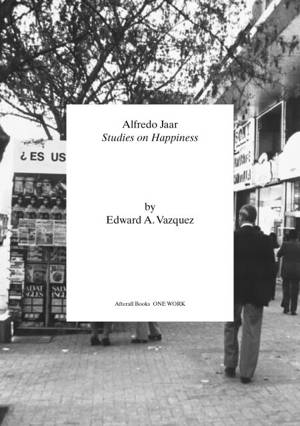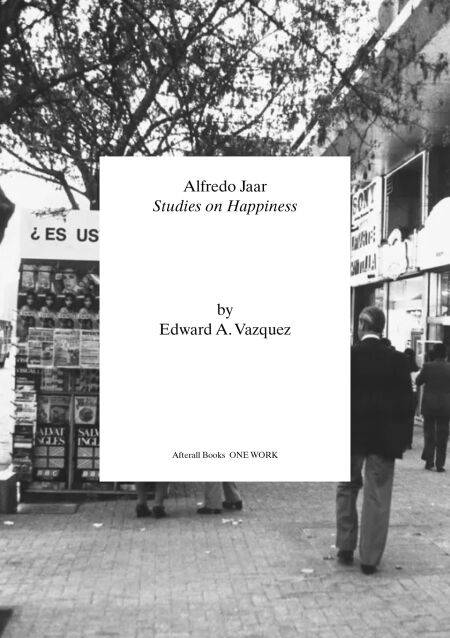
- Afhalen na 1 uur in een winkel met voorraad
- Gratis thuislevering in België vanaf € 30
- Ruim aanbod met 7 miljoen producten
- Afhalen na 1 uur in een winkel met voorraad
- Gratis thuislevering in België vanaf € 30
- Ruim aanbod met 7 miljoen producten
Zoeken
Omschrijving
A richly illustrated survey of Alfredo Jaar’s Studies on Happiness (1979–1981) and its deep political stakes in the historical context of Chile’s neoliberal transition.
Between 1979 and 1981, Alfredo Jaar asked Chileans a deceptively simple question: "Are you happy?" Through private interviews, sidewalk polls and video-recorded forums, among other interventions, Jaar’s three-year and seven-phase project, Studies on Happiness, addressed a furtive and fearful population living under Augusto Pinochet’s military dictatorship. It also spoke to a country in transition, as a newly adopted constitution remade Chile through privatisation and other neoliberal reforms. In its varied interventions and direct mode of address, Studies on Happiness functioned as a feedback device meant to catalyse a critical awareness with its blunt questioning.
Edward A. Vazquez contextualises Studies on Happiness within Jaar’s early production and situates his practice within a Chilean art world haunted by the residues of political violence. This study foregrounds the project’s historical embeddedness and the deep political stakes of its apparent sociality, recognising the crucial role that context has always played in Jaar’s practice. By turning to the Santiago of Studies on Happiness, Vazquez explores the work’s political and art historical environment and provides a wedge to realign current interpretations of Chilean art and hemispheric conceptualism with the openness central to Jaar’s project.
Between 1979 and 1981, Alfredo Jaar asked Chileans a deceptively simple question: "Are you happy?" Through private interviews, sidewalk polls and video-recorded forums, among other interventions, Jaar’s three-year and seven-phase project, Studies on Happiness, addressed a furtive and fearful population living under Augusto Pinochet’s military dictatorship. It also spoke to a country in transition, as a newly adopted constitution remade Chile through privatisation and other neoliberal reforms. In its varied interventions and direct mode of address, Studies on Happiness functioned as a feedback device meant to catalyse a critical awareness with its blunt questioning.
Edward A. Vazquez contextualises Studies on Happiness within Jaar’s early production and situates his practice within a Chilean art world haunted by the residues of political violence. This study foregrounds the project’s historical embeddedness and the deep political stakes of its apparent sociality, recognising the crucial role that context has always played in Jaar’s practice. By turning to the Santiago of Studies on Happiness, Vazquez explores the work’s political and art historical environment and provides a wedge to realign current interpretations of Chilean art and hemispheric conceptualism with the openness central to Jaar’s project.
Specificaties
Betrokkenen
- Auteur(s):
- Uitgeverij:
Inhoud
- Aantal bladzijden:
- 152
- Taal:
- Engels
- Reeks:
Eigenschappen
- Productcode (EAN):
- 9781846382604
- Verschijningsdatum:
- 11/12/2023
- Uitvoering:
- E-book
- Beveiligd met:
- Adobe DRM
- Formaat:
- ePub

Alleen bij Standaard Boekhandel
+ 19 punten op je klantenkaart van Standaard Boekhandel
Beoordelingen
We publiceren alleen reviews die voldoen aan de voorwaarden voor reviews. Bekijk onze voorwaarden voor reviews.







